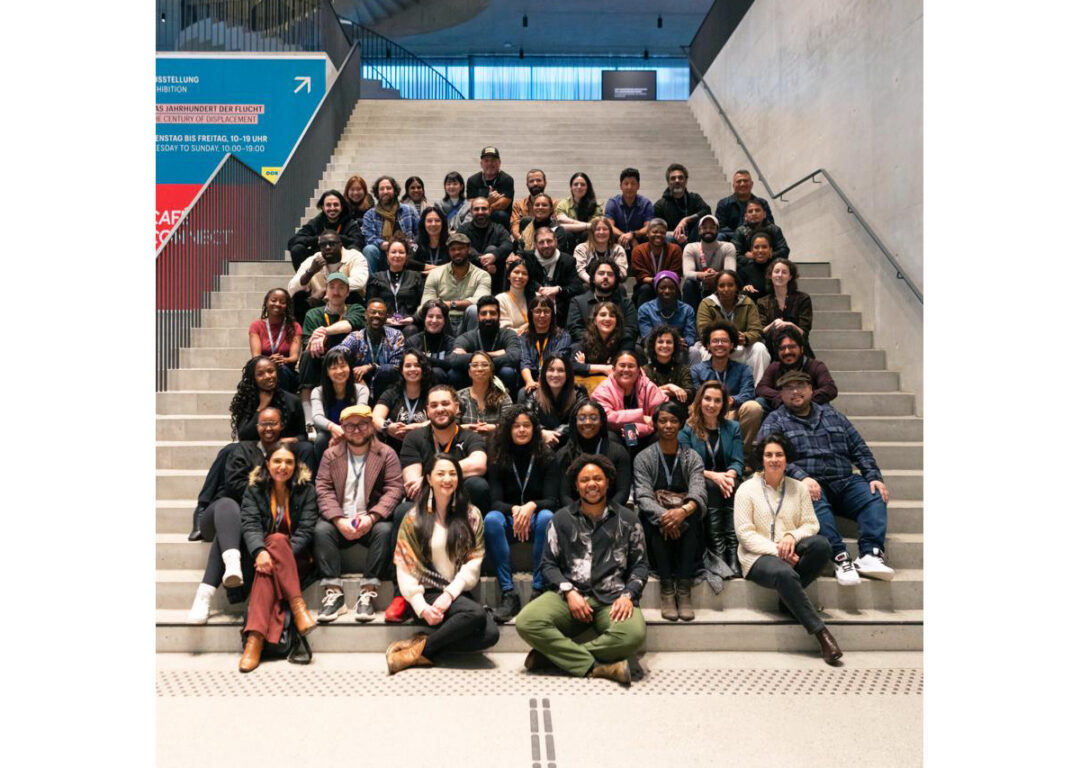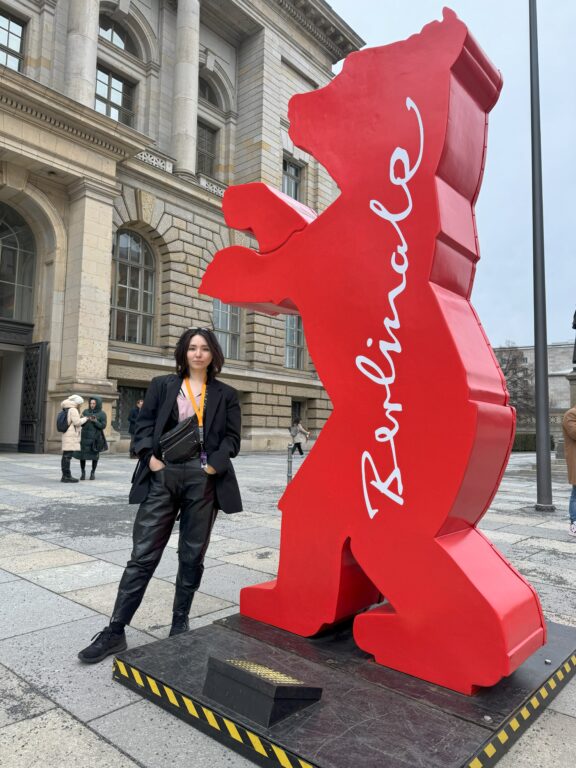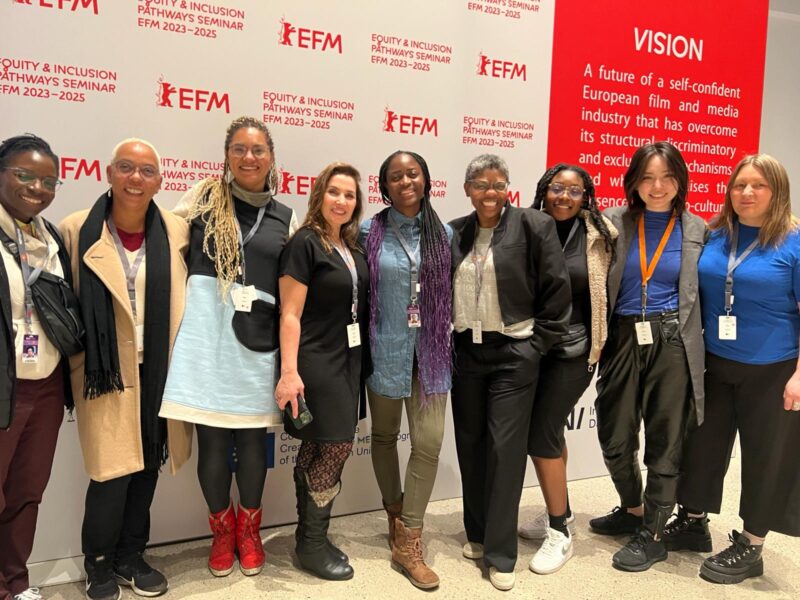Intense learning and networking in the EFM Toolbox program

Read an interview with Roxana Sadvokassova who participated in the program during Berlinale this February.
Text: Marjo Pipinen
Image above: Toolbox participants, Juliane Eiric / European Film Market
Director-scriptwriter Roxana Sadvokassova took part in the European Film Market’s (EFM) Fiction Toolbox program during Berlinale in February. She was selected to the program by Academy of Moving People and Images (AMPI), and the participation was made possible with the support of the Finnish Film Foundation.
This was the third time AMPI alumni had a possibility to apply for Toolbox. In 2022, it was supported by Goethe Institut and Jelica Jerinić was the participant, and in 2023, AVEK sponsored the participation of Mariia Solodiankina.
The EFM Toolbox program is part of the EFM’s Diversity & Inclusion initiatives. It aims to support filmmakers from marginalised groups and the Global South, creating pathways into the international film industry. The immersive program includes guidance and mentorship as well as in-depth industry know-how and connections. It is divided into a documentary and fiction strand.

Roxana Sadvokassova
SES: How did you get selected to the Toolbox program?
Roxana Sadvokassova: The application was available for AMPI alumni. This was the second time I applied. In the first round, I sent an application and materials to AMPI, and the second round was an interview with a jury.
What was the program like?
It was a stream of information, people, learning… We started with several online sessions before the festival, we were divided into groups according to time zones. I got a personal mentor, Max Tuula, who was really amazing. He helped me prepare mentally and emotionally to the program, guiding me to let go of my expectations.
On site, the program was really intense, and Max warned me it could be draining. The Toolbox staff was there to support the participants and give us a good experience. I am grateful for the care we received. The events were spread between several locations, but EFM Toolbox Program had its own room in The Documentation Centre for Displacement, Expulsion, Reconciliation [near the other EFM sites] which became a safe space for me during the festival – to rest, recharge and hang out with other participants and Toolbox staff and share our experiences. In addition to discussing films and filmmaking, we had conversations about the politics of the festival, and life in general.
What kinds of topics did you cover during the sessions?
For example, alternative ways of distribution, pitching, financing, producing case studies, impact filmmaking, audience design. The speakers were established filmmakers, some of whose films I had seen at festivals, like This Is Not a Burial, It’s a Resurrection (2019). When I saw that film, I remember thinking about how they were able to finance it, and now I heard it from the producers themselves!
We also had meetings with experts like festival programmers, financiers, legal consultants, people from distribution, sales. I also attended a lot of events in the Doc Toolbox to help me with development strategy for my next short film – an experimental docu-fiction about mortality, intimacy, conflict and interconnectedness in chlorinated settings of a public swimming hall.
You applied with a project titled The Prodigal Daughter. Can you tell a bit about it? How did you develop the project during Toolbox?
It is my first feature project, a horror drama, that is in early development. I had worked on it already in [Koneen säätiö’s] Saari Residence. During Toolbox, with the help of Max, I gained a better understanding of the story. I can now see the landscape of the things I should do next, like apply to a development lab. I’m really, really excited to move forward!
The other participants had projects in different stages, some also in early development, some looking for co-producers, and others already going into production.

Roxana second from the right
What was the biggest benefit you got from Toolbox as a filmmaker?
Previously I’ve had a feeling that I don’t quite have a place in the filmmaking industry. It changed after the Toolbox program, I gained more confidence, excitement and some level of know-how. The “I can do it” feeling became this strong bodily sensation. Now, I also have an internal map of what is out there, in the international film industry. At this point of my life EFM and Berlinale were the biggest film events I have attended. It was a life changing experience and I am really grateful to EFM Toolbox, AMPI and Finnish Film Foundation for this opportunity.
Did you make any connections that you are likely to follow up on?
Definitely, I feel some of the connections I established with other participants will grow into friendships and collaborations in the future. I am excited to follow their personal journeys and their projects. We have exchanged our contacts and have a group chat. There were about 60 participants from all over the world.
There were also filmmakers from Kazakhstan, Kyrgyzstan and Uzbekistan. My film career began some years after I moved from Kazakhstan to Finland, so it was great to meet and connect with fellow filmmakers from my home region. Since the start of my filmmaking journey, it’s been one of my long-term goals to grow connections between Finnish and Central Asian film industries. Slowly-slowly, it’ll get there, and I have a feeling that it could be a fun and enriching cross-pollination.
